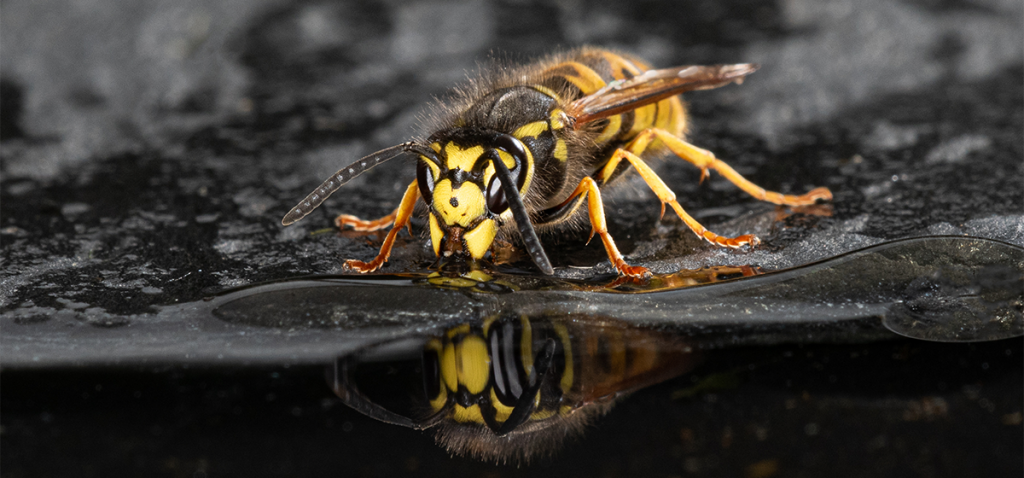Where Have The Wasps Gone?
It’s that time of year when normally you’d be sitting outdoors tucking into a barbecue or trying to enjoy some peaceful evenings in the garden, to be faced with an angry mob of irritating wasps. However, this year, you may have noticed a rapid decline in their numbers. This blog explores why this is the case.
There are 7,000 species of wasps and conservation experts have reported a downward number in their population of late. Although hearing that less wasps may be buzzing around causing utter mayhem may be music to your ears, it can lead to repercussions for the world itself.

Why Wasps Are Important For Our Ecosystem
Like them or not, wasps are beneficial for our planet. Similarly to bees, they pollinate plants, which is vital for our gardens and agriculture.
Wasps are apex predators, who sit up at the top of the food chain, helping to maintain a balanced ecosystem by controlling pest populations. In fact, it is estimated in the UK alone that around 14 million kilograms of insects are caught by wasps during the summer months over a typical year.
Without this natural pest controller, we would simply be overrun by greenfly, caterpillars, spiders, and other insects, and our crops would suffer.
Why The Decline In Numbers of Wasps
Until the recent spell of good weather, 2024 has been incredibly wet. This damp and cold climate has led to mould growth, impacting the wasps’ survival rate during the winter months. This has resulted in a knock on effect this year.
You may notice that it isn’t only wasps that have been in decline. Bees and other flying insects, such as butterflies, have also been impacted by these poor climate conditions. A recent survey conducted by the Butterfly Conservation reported that, on average only half the number of butterflies have been spotted compared with last year. The number of bees has also taken a downturn since May this year. This is due to our country’s downpours and flooding preventing insects from being able to seek food, mate and reproduce. In turn, reducing their population.
Another reason for the reduction in the number of wasps has been down to other factors, such as:
- Habitat loss
- Pesticides used with farming
- Light pollution
- The arrival of invasive non-native species, such as Asian Hornets, preying on wasps
The good news is, generally after a bad year, we can hope that next year will be much improved (depending on the weather), with there being an abundance of food on offer for these insects.
What To Do If You Discover A Wasp Nest On Your Property
Although numbers may have decreased this year, wasps are still active around the UK. If you discover a nest in or around your property, it’s important not to attempt to remove the problem by yourself.
In late summer in particular, wasps are more aggressive and territorial. This is due to colony numbers being at their peak, with some nests hosting hundreds to thousands inside. If disturbed and they feel threatened, their defence will be to sting, which can be fatal for some people. This is why it’s vital that you call in the help of a pest control professional, who is equipped with safety gear to effectively deal with the issue.
